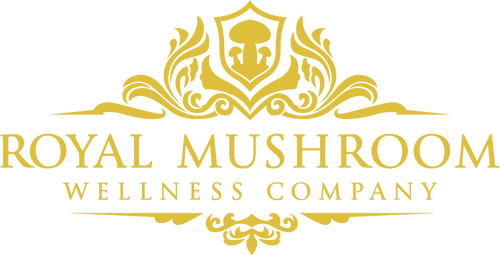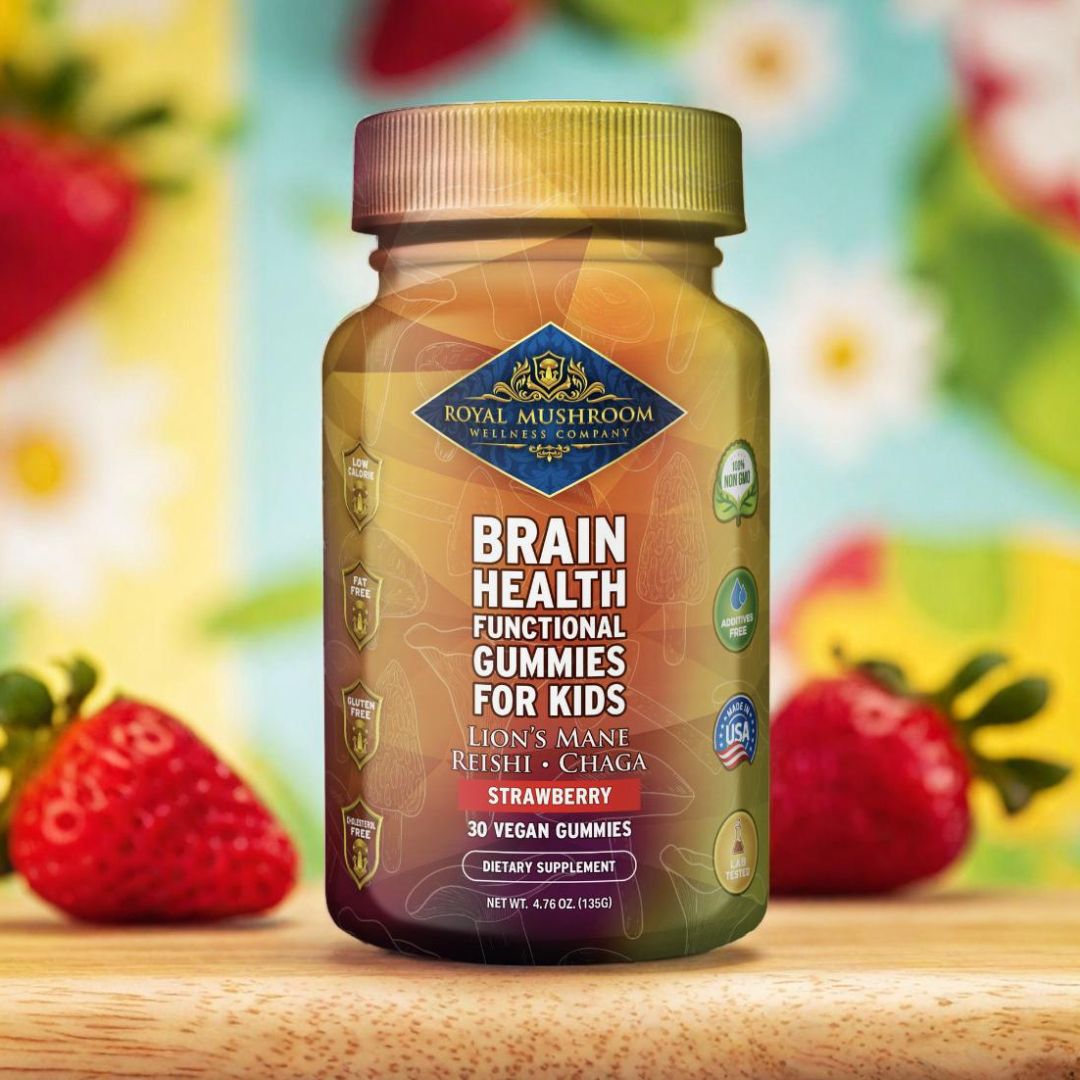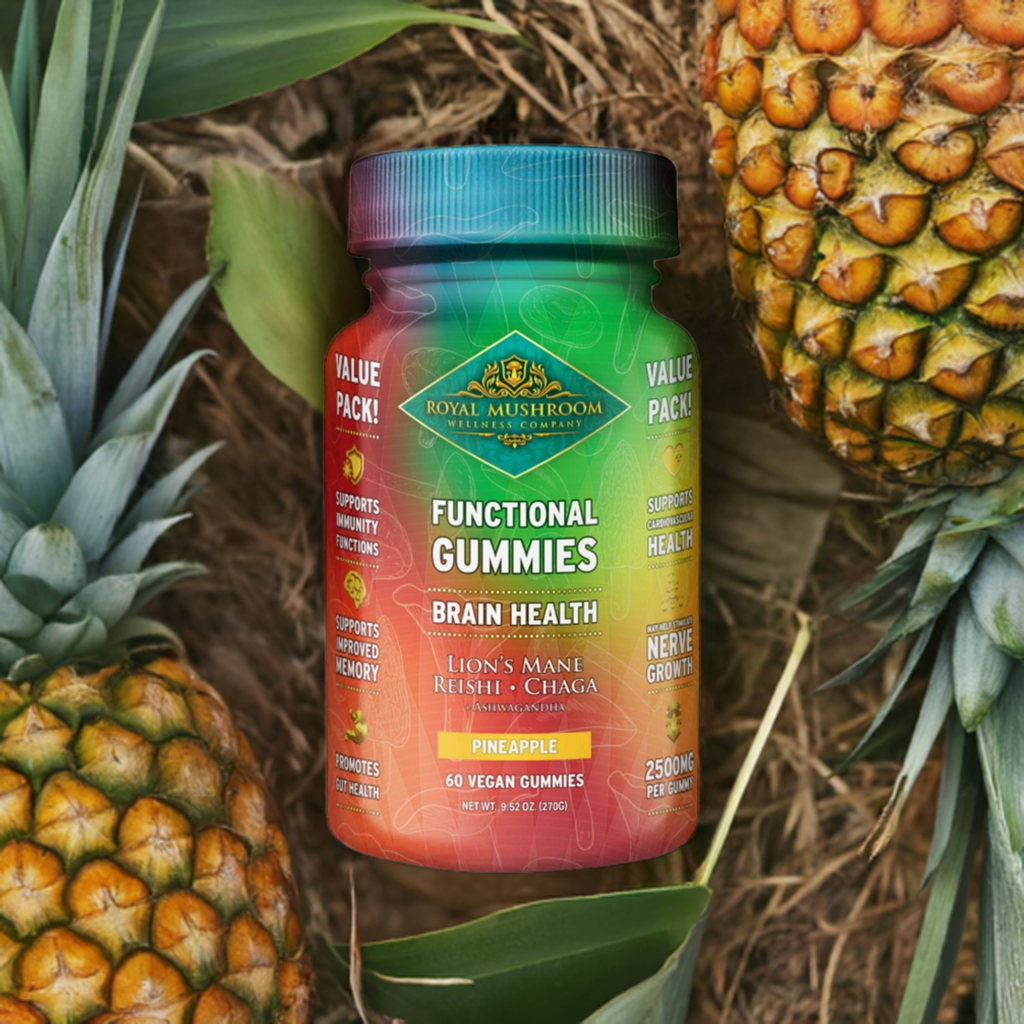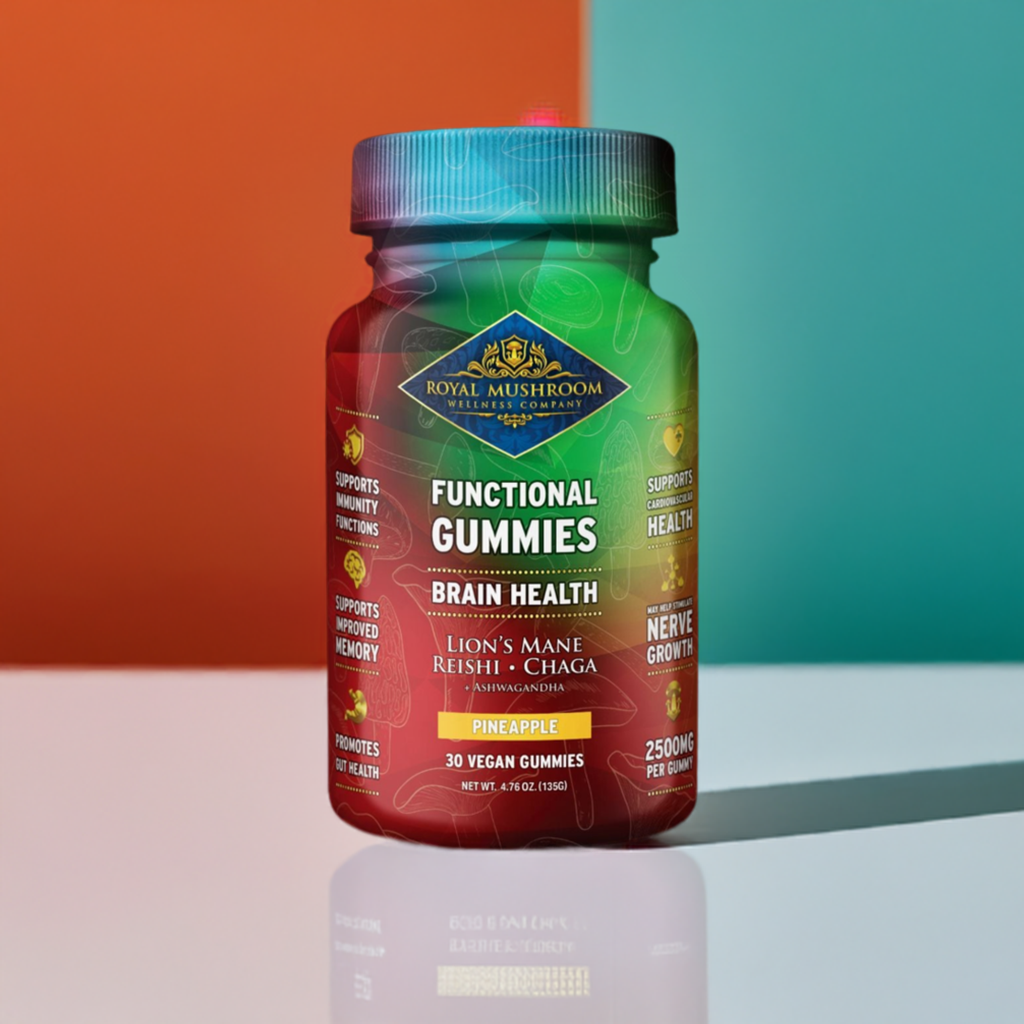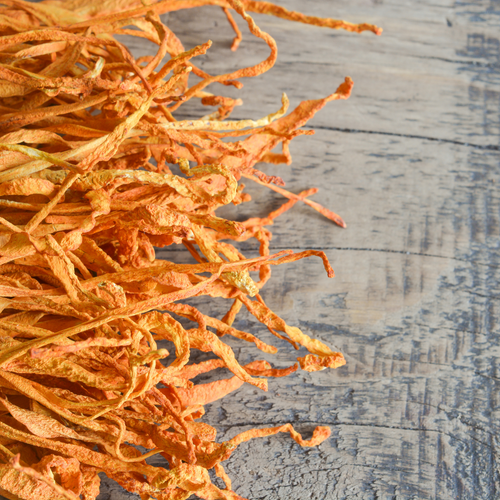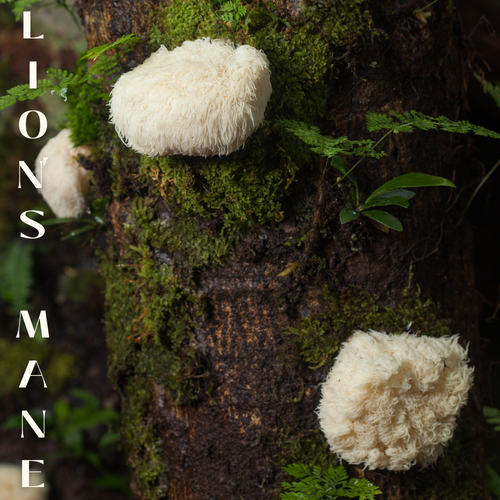In today's fast-paced world, maintaining optimal brain health is essential for overall well-being. While there are various supplements and strategies available, mushrooms have gained attention for their potential cognitive benefits. In this comprehensive guide, we'll explore the top mushrooms known for enhancing brain health and cognitive function.
Harnessing the Power of Nature: Exploring the Top Mushrooms for Cognitive Function
Understanding Mushroom Supplements for Brain Health
Mushroom supplements have gained popularity as natural remedies for supporting brain health. These supplements often contain extracts from medicinal mushrooms, which are known for their neuroprotective properties and cognitive-enhancing effects. Some of the most notable mushroom supplements for brain health include:
- Lion's Mane: Renowned for its ability to promote nerve growth factor (NGF) production, Lion's Mane mushroom is prized for its potential to support cognitive function, memory, and overall brain health.
- Reishi: With its adaptogenic properties, Reishi mushroom is believed to help combat stress and promote relaxation, which can indirectly benefit brain health by reducing inflammation and supporting immune function.
- Cordyceps: Known for its energizing effects, Cordyceps mushroom may support cognitive function by enhancing oxygen utilization and improving circulation to the brain.
- Chaga: Rich in antioxidants, Chaga mushroom may help protect brain cells from oxidative stress and inflammation, potentially reducing the risk of cognitive decline.
- Turkey Tail: Recognized for its immune-modulating properties, Turkey Tail mushroom may indirectly support brain health by promoting overall wellness and reducing inflammation in the body.
Unlocking Neurological Benefits: Mushroom-Derived Compounds for Brain Health
Mushrooms contain various bioactive compounds that contribute to their cognitive benefits. These compounds include polysaccharides, beta-glucans, terpenoids, and antioxidants, which have been studied for their neuroprotective and cognitive-enhancing effects. Here are some key mushroom-derived compounds and their potential benefits for brain health:
- Polysaccharides: Found abundantly in mushrooms like Reishi and Turkey Tail, polysaccharides have been shown to possess antioxidant and immunomodulatory properties, which may help protect brain cells from damage and support cognitive function.
- Beta-glucans: Known for their immune-stimulating effects, beta-glucans found in mushrooms like Cordyceps and Chaga may indirectly support brain health by promoting overall immune function and reducing inflammation in the body.
- Terpenoids: Certain mushrooms, such as Lion's Mane, contain unique terpenoids like erinacines and hericenones, which have been studied for their ability to promote nerve growth and protect brain cells from degeneration.
- Antioxidants: Mushrooms are rich in antioxidants like selenium, vitamin C, and polyphenols, which help neutralize free radicals and reduce oxidative stress in the brain, potentially slowing down age-related cognitive decline.
Making Informed Choices: Selecting the Best Mushrooms for Brain Health
When choosing mushrooms for brain health, it's essential to consider factors such as quality, purity, and dosage. Look for reputable brands that offer organic, third-party tested mushroom supplements to ensure potency and safety. Additionally, consult with a healthcare professional or qualified practitioner before starting any new supplement regimen, especially if you have underlying health conditions or are taking medication.
Mushroom Supplements for Brain Health: A Comparative Overview
| Mushroom Supplement | Key Benefits | Recommended Dosage |
|---|---|---|
| Lion's Mane | Supports nerve growth factor production, enhances cognitive function and memory | 500-1500 mg per day |
| Reishi | Promotes relaxation, reduces stress, supports immune function and overall wellness | 500-2000 mg per day |
| Cordyceps | Improves energy levels, enhances oxygen utilization, supports physical and mental performance | 500-1500 mg per day |
| Chaga | Rich in antioxidants, reduces inflammation, supports immune function and brain health | 500-2000 mg per day |
| Turkey Tail | Supports immune function, reduces inflammation, promotes overall wellness | 1000-3000 mg per day |
Embracing the Power of Mushrooms for Brain Health
In conclusion, mushrooms offer a natural and holistic approach to supporting brain health and cognitive function. Whether you're looking to enhance memory, improve mental clarity, or protect against age-related cognitive decline, incorporating mushroom supplements into your daily routine may offer numerous benefits. By harnessing the power of nature's pharmacy, you can nourish your brain and optimize your cognitive performance for years to come.
Remember to prioritize quality and consistency when selecting mushroom supplements, and always consult with a healthcare professional for personalized advice. With the right approach, you can unlock the full potential of mushrooms for brain health and embark on a journey to optimal cognitive well-being.
FAQs: Mushrooms for Brain Health
Q: What are the best mushrooms for brain health?
A: Some of the best mushrooms for brain health include Lion's Mane, Reishi, Cordyceps, Chaga, and Turkey Tail. These mushrooms are known for their neuroprotective properties and cognitive-enhancing effects.
Q: How do mushroom supplements support brain health?
A: Mushroom supplements contain bioactive compounds like polysaccharides, beta-glucans, and antioxidants, which have been shown to protect brain cells from damage, support nerve growth, and reduce inflammation, thereby promoting optimal brain health.
Q: What are the recommended dosages for mushroom supplements?
A: Recommended dosages vary depending on the type of mushroom supplement and individual factors. Generally, dosages range from 500-2000 mg per day, but it's essential to consult with a healthcare professional for personalized guidance.
Q: Are there any side effects associated with mushroom supplements for brain health?
A: While mushroom supplements are generally safe for most people, some individuals may experience mild side effects like digestive issues or allergic reactions. It's crucial to start with a low dose and monitor for any adverse reactions.
Q: How can I incorporate mushroom supplements into my daily routine?
A: Mushroom supplements can be easily incorporated into your daily routine by adding them to smoothies, coffee, tea, or even meals. Many supplements also come in convenient capsule or powder form for easy consumption.
